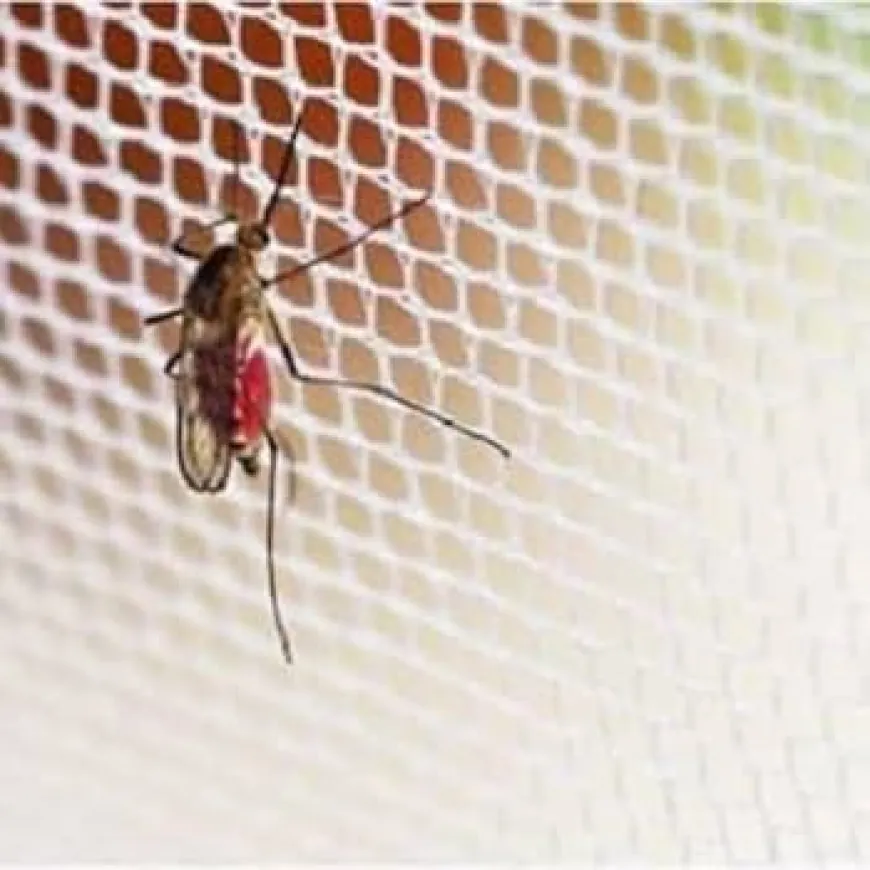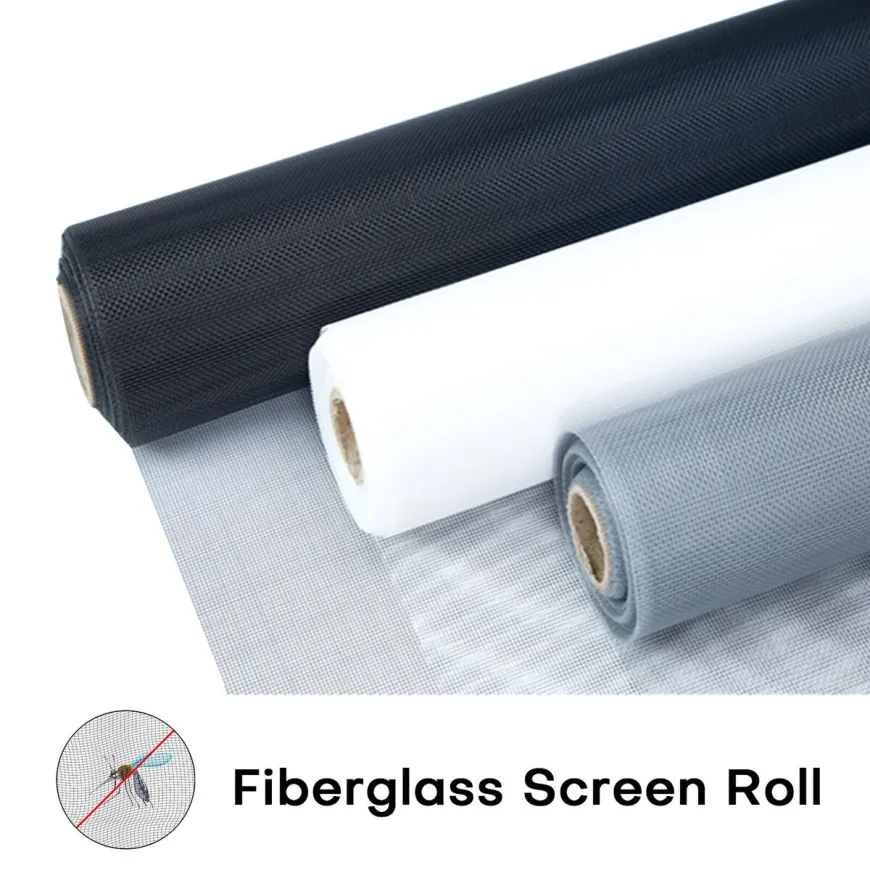Fly Screen Material Suppliers and Insect Screen Mesh Suppliers: An Industry Overview
As the demand for fly screen materials and insect screen meshes continues to grow, the industry is poised for further innovation and development, ensuring that consumers have access to effective, durable, and aesthetically pleasing solutions for their insect protection needs.

Fly screens and insect screen meshes are essential components for ensuring comfort and hygiene in residential and commercial spaces. These materials provide effective barriers against insects while allowing ventilation and visibility. The market for fly screen materials and insect screen meshes is robust, driven by increasing awareness of health, rising standards of living, and growing demand for home improvement products. This article delves into the world of fly screen material suppliers and insect screen mesh suppliers, exploring their offerings, market trends, and challenges.
Key Fly Screen Material Suppliers
Fly screen materials are available in various types, each catering to specific needs and preferences. The leading suppliers in this industry offer a range of materials, including fiberglass, aluminum, stainless steel, and polyester.
Phifer Incorporated
Phifer Incorporated, a US-based company, is a global leader in the fly screen material market. Known for their high-quality products, Phifer offers a wide range of screen materials, including fiberglass, aluminum, and solar screening. Their materials are renowned for durability, clarity, and UV protection, making them a popular choice for residential and commercial applications.
Saint-Gobain ADFORS
Saint-Gobain ADFORS, part of the Saint-Gobain Group, is another major player in the fly screen material market. They offer a comprehensive range of screening products, including fiberglass and polyester mesh. Saint-Gobain ADFORS focuses on innovation, with products designed for enhanced visibility, improved airflow, and pet resistance.
MAISHI Manufacturing
MAISHI Manufacturing, based in China, is a prominent supplier of fly screen materials. They provide an extensive selection of screen meshes, including stainless steel, aluminum, and fiberglass. MAISHI is known for their competitive pricing, high-quality standards, and customized solutions, catering to diverse market needs.
Market Trends in Fly Screen Materials
The fly screen material market is evolving, driven by several key trends:
Increased Demand for Eco-Friendly Products
With growing environmental awareness, consumers are seeking eco-friendly fly screen materials. Suppliers are responding by offering screens made from recyclable and sustainable materials. These eco-friendly options not only reduce the environmental impact but also appeal to environmentally conscious consumers.
Technological Advancements
Advancements in technology are enhancing the quality and functionality of fly screen materials. Innovations such as nano-coatings, antimicrobial treatments, and UV protection are becoming standard features. These technological improvements increase the lifespan of screens and provide additional benefits, such as protection against harmful microbes and sun damage.
Customization and Aesthetics
Customization is a significant trend in the fly screen material market. Consumers are looking for screens that match their aesthetic preferences and specific requirements. Suppliers are offering a variety of colors, patterns, and customization options to meet these demands. This trend is particularly evident in the residential market, where homeowners seek to enhance the visual appeal of their properties.
Leading Insect Screen Mesh Suppliers
Insect screen meshes are crucial for preventing insects from entering living and working spaces. The leading suppliers in this market provide a range of mesh types, including stainless steel, aluminum, and fiberglass, designed to meet various needs.

TWP Inc.
TWP Inc., a US-based company, is a leading supplier of insect screen meshes. They offer an extensive selection of meshes made from materials such as stainless steel, aluminum, and bronze. TWP Inc. is known for their high-quality products, precision, and extensive inventory, catering to both residential and industrial applications.
New York Wire
New York Wire, part of the Saint-Gobain ADFORS family, is a renowned supplier of insect screen meshes. Their product range includes fiberglass, aluminum, and specialty meshes designed for durability and enhanced performance. New York Wire focuses on providing innovative solutions that meet the evolving needs of their customers.
Wuxi JDR Metal Mesh Co., Ltd.
Wuxi JDR Metal Mesh Co., Ltd., based in China, is a prominent manufacturer and supplier of insect screen meshes. They offer a wide variety of meshes, including stainless steel, aluminum, and fiberglass. Wuxi JDR Metal Mesh is known for their competitive pricing, high-quality standards, and ability to deliver customized solutions.
Market Trends in Insect Screen Meshes
The insect screen mesh market is characterized by several key trends:
Focus on Durability and Longevity
Durability and longevity are critical factors for consumers when choosing insect screen meshes. Suppliers are focusing on producing high-quality meshes that can withstand harsh weather conditions, resist corrosion, and maintain their integrity over time. Stainless steel and aluminum meshes are particularly popular for their strength and durability.
Enhanced Visibility and Airflow
Consumers are increasingly looking for insect screen meshes that provide unobstructed views and excellent airflow while keeping insects out. Innovations in mesh design and materials are addressing these needs, with products that offer enhanced visibility and superior ventilation. High-visibility and micro-mesh options are gaining popularity for their ability to provide clear views and effective insect protection.
Pet-Resistant and Child-Safe Options
There is a growing demand for insect screen meshes that are pet-resistant and child-safe. Suppliers are offering products designed to withstand scratching and pressure from pets while ensuring the safety of children. These meshes are made from durable materials and feature reinforced edges to prevent damage and maintain their effectiveness.
Challenges in the Fly Screen and Insect Screen Mesh Market
Despite the robust demand and market growth, suppliers of fly screen materials and insect screen meshes face several challenges:
Competition and Price Pressures
The market is highly competitive, with numerous suppliers vying for market share. This competition exerts pressure on prices, compelling suppliers to find ways to reduce costs while maintaining quality. Balancing affordability and quality is a continuous challenge in this industry.
Supply Chain Disruptions
Global supply chain disruptions, such as those caused by the COVID-19 pandemic, have impacted the availability and pricing of raw materials. Suppliers must navigate these challenges to ensure consistent supply and manage costs effectively. Diversifying supply sources and enhancing supply chain resilience are crucial strategies.
Meeting Regulatory Standards
Suppliers must comply with various regulatory standards related to safety, environmental impact, and quality. Keeping up with changing regulations and ensuring compliance can be challenging, especially for suppliers operating in multiple markets. Adhering to these standards is essential to maintain market access and customer trust.
Conclusion
The market for fly screen materials and insect screen meshes is dynamic and evolving, driven by increasing demand for effective insect protection, environmental sustainability, and technological advancements. Leading suppliers such as Phifer Incorporated, Saint-Gobain ADFORS, MAISHI Manufacturing, TWP Inc., New York Wire, and Wuxi JDR Metal Mesh Co., Ltd. are at the forefront of innovation, offering high-quality products that meet diverse customer needs.
Industry trends such as the focus on eco-friendly products, technological advancements, customization, enhanced durability, visibility, and pet-resistant options are shaping the market landscape. However, suppliers must navigate challenges such as competition, supply chain disruptions, and regulatory compliance to remain competitive and successful.

 jayypotts
jayypotts 










